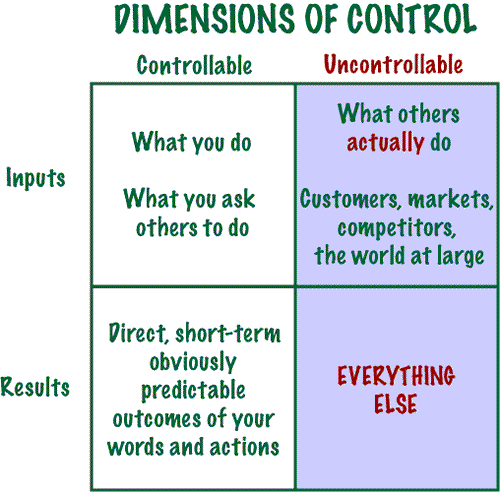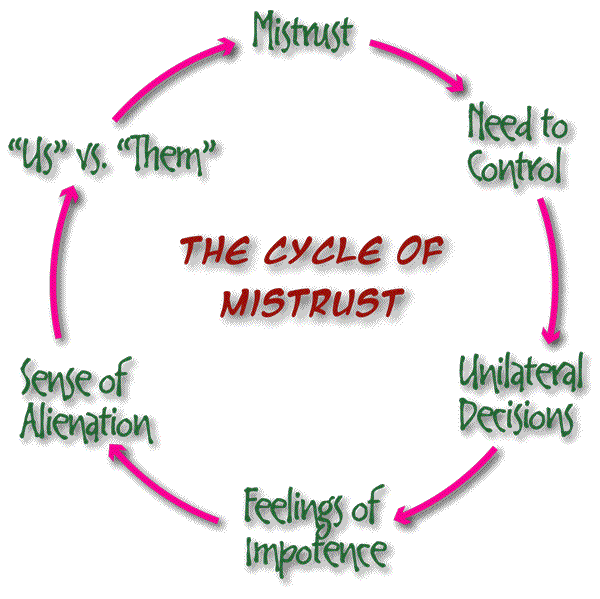Hamburger-Management-prone organizations may be born, not made
Around 1970, Walter Mischel launched a classic experiment. He left a succession of 4-year-olds in a room with a bell and a marshmallow. If they rang the bell, he would come back and they could eat the marshmallow. If, however, they didn’t ring the bell and waited for him to come back on his own, they could then have two marshmallows.It makes you think, doesn’t it? Self-control and delaying personal gratification may well be essential elements in living a good life. Brooks concludes:
In videos of the experiment, you can see the children squirming, kicking, hiding their eyes—desperately trying to exercise self-control so they can wait and get two marshmallows. Their performance varied widely. Some broke down and rang the bell within a minute. Others lasted 15 minutes.
The children who waited longer went on to get higher SAT scores. They got into better colleges and had, on average, better adult outcomes. The children who rang the bell quickest were more likely to become bullies. They received worse teacher and parental evaluations 10 years on and were more likely to have drug problems at age 32.
Young people who can delay gratification can sit through sometimes boring classes to get a degree. They can perform rote tasks in order to, say, master a language. They can avoid drugs and alcohol. For people without self-control skills, however, school is a series of failed ordeals. No wonder they drop out. Life is a parade of foolish decisions: teen pregnancy, drugs, gambling, truancy and crime.Hamburger Management is instant gratification translated into a corporate context. It is putting short-term desires above both long-term benefits and the common good. And it is using crude, short-term pressure to make that happen. To echo Mr. Brooks’ article, Hamburger Management is often a parade of essentially foolish decisions, hastily covered up by shifting the blame and distracting other people with a show of zeal and excessive effort.
Is Hamburger Management innate in an organization, or created by current business conditions?
I suspect the answer, as so often, is that both contribute to its prevalence. The most common set of corporate norms today, created by failed ideas such as motivation by monetary incentives and the mantra of “advancing stakeholder value,” certainly make Hamburger Management more likely—and more acceptable. Since most organizations also recruit people they believe will fit in with present norms, there is probably an unconscious selection for anyone whose willingness to do what is generally approved make utilization of Hamburger Management approaches still more common.Still, I do think that you can distinguish between organizations who seem to possess abundant self-control and those who don’t. Those that have a long-term outlook built into their corporate culture fall into the first group. They seem to find it relatively easy to persist with stable strategies through good times and bad. They often place a higher value on creativity, research, and projects that will not show full results for many years ahead. They don’t fall for fads or indulge in high-risk, quick-fix actions. As a result, they tend to last, steadily making their way towards the forefront of their industries, but rarely displaying any sudden or spectacular surges of growth.
In contrast, there are organizations that seem to make a specialty of chasing every management and business fad around. Their fortunes go up like a rocket and down like the stick. They are the darlings of Wall Street one year, and on the verge of bankruptcy the next. Mostly, they don’t last very long, either crashing and burning (often in a mess of criminal charges and ethics violations), or being bought out by other, equally short-term businesses hoping to make a quick killing through mergers.
Do organizations also move between these categories? I think so. In the past few years Ford has moved from being a huge, vertically-organized, ultra-blue chip business to laying off tens of thousands of workers and closing plants to stay afloat. Is the problem simply market conditions? Surely not. In the run up to Ford’s current woes, we saw a period of rapid acquisitions, seemingly driven as much by trying to deny those companies to others as by any merit in buying them for their own sakes. We saw a high-profile, glamorous CEO in charge, and some significant problems with the ethical handling of product quality failures. The Telecom industry also indulged in a mad period of mergers and acquisitions, paid ridiculous sums of money for cellphone licenses, claimed to be about to change the world of communications … and crashed in a mess of criminal prosecutions and evaporating profits.
Maybe, like people, organizations find exercising self-control either relatively easy (perhaps because that ability has been part of their corporate psyche from an early age), or extremely difficult. Also like human beings, those who behaved in controlled ways for many years can suddenly burst out in a fury of self-indulgence and instant gratification, perhaps under the influence of new leadership chosen to be “less boring and staid” that what went before (HP might be a case in point). When this happens, the organization has little or no experience of how to operate in such risky ways, and often makes a complete mess of the attempt to be suddenly “hip.” Just as in the old story of the prodigal son, decades of carefully-saved resources can be spent in a few wild years of non-stop sensation seeking.
As an investor, I would start to worry as soon as I saw any organization whose shares I owned begin to act like a four-year old with an uncontrollable urge for a marshmallow now. As an employee, I would swiftly polish my resumé and scan the job market. And as a competitor, I would rejoice and settle back to watch the fun.
Self-control is never sexy and rarely fashionable. Still, that doesn’t make it wrong. Today’s Hamburger Management organizations are exactly like teens addicted to drugs: willing to sacrifice almost anything for the next “fix.” Only they aren’t using cocaine or meth. Their drugs of choice are outsourcing, mega-mergers, quick profits, huge payoffs for a few at the top, and unethical or criminal behavior to keep the “highs” rolling in.We prosecute drug-pushers and suppliers of illegal substances. Maybe we should think about applying similar sanctions to the consultancies, purveyors of dubious accounting practices, financiers, and management gurus who supply our organizations with the “drugs” they crave to give them an instant high—and, like their counterparts among the drug dealers of Colombia or Mexico, make fortunes as a result.








